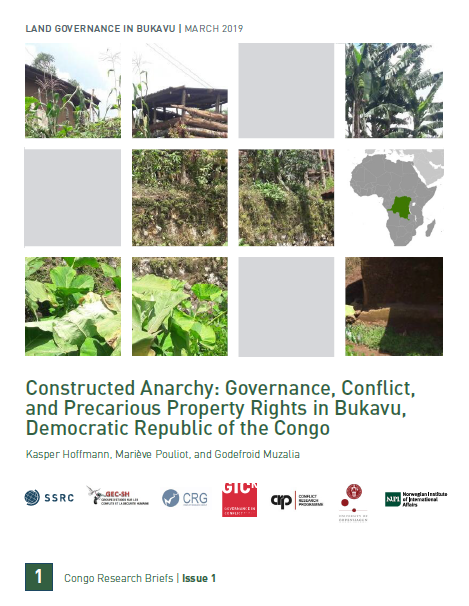Constructed Anarchy: Governance, Conflict, and Precarious Property Rights in Bukavu, Democratic Republic of the Congo
This policy brief analyzes the nexus between conflict, property rights, and land governance in the Panzi neighborhood of Bukavu, the provincial capital of South Kivu. Based on qualitative and quantitative data we show that property rights are precarious in Panzi for most people. The issue of property rights is among the most important issues facing Panzi residents. The research suggests that practices of governance are main causes of tenure insecurity and land conflicts in Bukavu. People’s property rights are withheld from them with the aim of generating income for the land authorities. This means that land authorities de facto use the law as an instrument to keep people in a situation of permanent illegality, which makes them vulnerable to extortion. Panzi’s land authorities threaten residents into a negotiating a transgression fee or fine. In this way, Panzi residents are able to acquire a kind of temporary right to break the law, until the next authority comes along asking for another fee.



